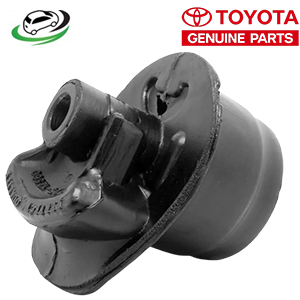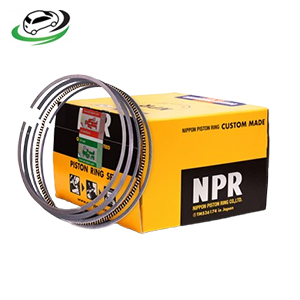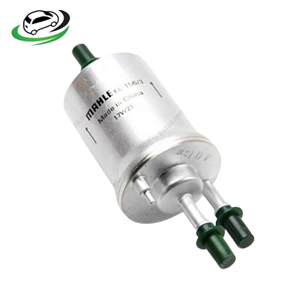-10%
Get Fuel Inline Filter Assy For FSI-TFSI Engines KL1563
The fuel inline filter assembly is a critical component of a vehicle’s fuel system, responsible for ensuring the cleanliness and quality of the fuel that reaches the engine. It helps protect the engine from contaminants like dirt, rust, and other particles that can harm engine components and reduce overall performance. A fuel inline filter assembly consists of several parts, including the housing, filter element, and inlet/outlet connections. In this comprehensive guide, we will explore the function, types, benefits, signs of wear, and maintenance of fuel inline filters, as well as their importance in modern automotive systems.
Function of a Fuel Inline Filter Assembly
The primary function of the fuel inline filter assembly is to trap contaminants and impurities present in the fuel before they reach the engine. This filtration is vital for maintaining efficient fuel combustion and protecting the sensitive components within the fuel system, such as injectors, fuel pumps, and carburetors. The filter is usually located between the fuel tank and the engine, positioned along the fuel line, hence the name “inline” filter.
Key Functions:
- Contaminant Removal: The inline filter traps particles like dust, dirt, rust, and other foreign substances that can enter the fuel tank through fueling or natural wear and tear of the fuel system.
- Fuel Delivery Protection: By keeping impurities out of the fuel injectors and fuel pump, the filter ensures that fuel is delivered at the correct pressure and volume, preventing blockages that could cause stalling or poor engine performance.
- Enhanced Engine Efficiency: Clean fuel allows for optimal combustion, improving the engine’s efficiency, power output, and fuel economy.
- Prevent Engine Damage: Contaminants in the fuel can cause serious damage to engine components, including the fuel injectors, fuel pump, and even the cylinders. The inline filter prevents such damage, prolonging engine life.
Types of Fuel Inline Filters
Fuel inline filters come in various designs and materials, depending on the vehicle type, engine configuration, and fuel system specifications. Here are the most common types of fuel filters:
1. Cartridge Fuel Filter
- Description: Cartridge filters are a common type of inline filter, consisting of a replaceable filter element inside a metal or plastic housing.
- Usage: These filters are often found in modern vehicles with high-pressure fuel injection systems.
- Materials: The filter element is usually made from pleated paper or synthetic materials designed to trap fine particles.
2. Spin-on Fuel Filter
- Description: Spin-on filters have a self-contained unit with a metal housing and a built-in filter element. They are designed to be replaced entirely during servicing.
- Usage: These are typically used in larger vehicles such as trucks, buses, and heavy equipment, as well as older cars with carbureted engines.
- Materials: Made of metal or heavy-duty plastic, with an internal paper or synthetic filter.
3. Metal Mesh Fuel Filter
- Description: Metal mesh filters use a fine metal screen to filter out larger particles. They are less efficient at trapping fine particles compared to paper filters.
- Usage: Often used in performance vehicles or motorcycles, where minimal fuel restriction is desired.
- Materials: Constructed from stainless steel or other durable metals, providing long service life and resistance to wear.
4. In-Tank Fuel Filter
- Description: Some fuel filters are located inside the fuel tank, typically attached to the fuel pump. These filters are generally not considered “inline” filters, but they perform a similar function by filtering fuel before it leaves the tank.
- Usage: Common in fuel-injected vehicles where the fuel pump is submerged in the fuel.
- Materials: These filters are often made from durable synthetic materials that can withstand constant fuel immersion.
5. Strainer Filter
- Description: A strainer filter is a coarse filter designed to trap larger debris before it reaches the main fuel filter. It’s often used as a pre-filter.
- Usage: Typically found in older vehicles or as an additional layer of protection in modern vehicles with high-performance engines.
- Materials: Made from stainless steel mesh or plastic mesh.
Benefits of a Fuel Inline Filter Assembly
Using a high-quality fuel inline filter offers several key advantages, including:
1. Enhanced Engine Performance
- By delivering clean fuel to the engine, the inline filter ensures that the fuel combustion process is as efficient as possible. This results in better throttle response, smoother operation, and increased power.
2. Fuel System Protection
- The filter prevents debris from clogging sensitive components like fuel injectors and pumps. Without a fuel filter, contaminants can easily block these parts, leading to poor fuel atomization and reduced performance.
3. Prolonged Engine Life
- Contaminants in fuel can wear down engine components over time, leading to expensive repairs or even engine failure. A well-maintained fuel filter helps protect the engine from damage, extending its overall lifespan.
4. Improved Fuel Efficiency
- A clean fuel system allows the engine to run more efficiently, reducing fuel consumption. This not only saves money on fuel but also reduces emissions, making your vehicle more eco-friendly.
5. Cost Savings on Repairs
- Replacing a clogged or worn-out fuel filter is much cheaper than replacing damaged fuel injectors or a failed fuel pump. Regular maintenance of the fuel filter can prevent costly repairs in the future.
Signs of a Failing Fuel Inline Filter
Fuel inline filters can become clogged or damaged over time, which can cause a range of problems. Knowing the signs of a failing fuel filter can help you address issues before they lead to more significant problems.
1. Reduced Engine Power
- A clogged filter restricts fuel flow to the engine, leading to a noticeable drop in power, especially during acceleration or when driving uphill.
2. Poor Fuel Efficiency
- If your vehicle is using more fuel than usual, it could be a sign that the filter is restricting fuel flow, causing the engine to compensate by using more fuel to maintain performance.
3. Engine Misfires or Hesitation
- A clogged fuel filter can lead to inconsistent fuel supply, causing the engine to misfire or hesitate, especially at high speeds or under heavy load.
4. Starting Issues
- Difficulty starting the engine, or the engine stalling soon after starting, can be a symptom of a fuel filter that is severely clogged and starving the engine of fuel.
5. Check Engine Light
- In some vehicles, a failing fuel filter may trigger the check engine light due to fuel system performance issues. However, this can also indicate other problems, so it’s important to have the vehicle diagnosed by a professional.
Maintenance and Replacement of a Fuel Inline Filter
Maintaining the fuel inline filter is an essential aspect of vehicle maintenance. Most manufacturers recommend replacing the fuel filter at regular intervals, typically between 20,000 and 40,000 miles, depending on the vehicle and driving conditions. Here are key maintenance and replacement steps:
1. Regular Inspections
- Periodically inspect the fuel filter for signs of dirt or clogging. Some filters have a clear housing, making it easy to check for debris build-up.
2. Replace the Filter as Needed
- If you notice any of the symptoms of a clogged filter, or if you reach the manufacturer-recommended replacement interval, it’s important to replace the fuel filter promptly.
3. Use Quality Fuel
- Using high-quality, clean fuel reduces the amount of debris entering the fuel system, extending the life of the fuel filter.
4. Follow the Manufacturer’s Recommendations
- Always follow the vehicle manufacturer’s guidelines for fuel filter replacement and maintenance to ensure optimal performance and avoid voiding warranties.
Conclusion
The fuel inline filter assembly is a vital component of a vehicle’s fuel delivery system, responsible for keeping the fuel free of contaminants and ensuring smooth engine operation. Different types of filters are available, each designed for specific applications, and regular maintenance of these filters can enhance performance, improve fuel efficiency, and prevent costly repairs. Understanding the function, benefits, and signs of wear associated with fuel filters allows vehicle owners to maintain their vehicles effectively, ensuring a long and reliable engine life. Whether you are driving a performance car, a commercial truck, or a family sedan, the fuel inline filter is a small but essential part of the overall health of your vehicle.
Follow us on Facebook for more parts.




Reviews
Clear filtersThere are no reviews yet.